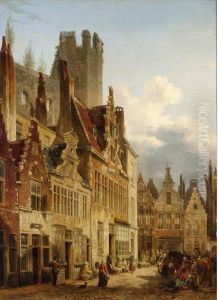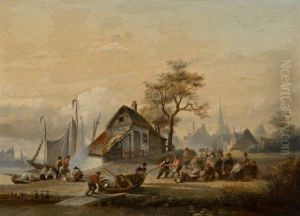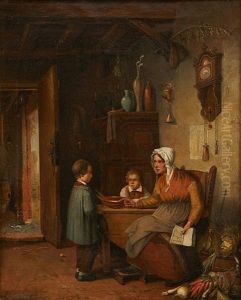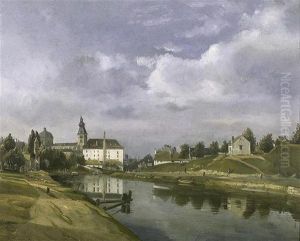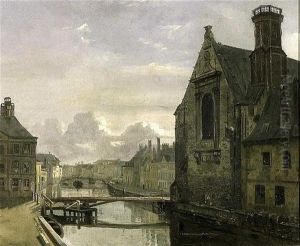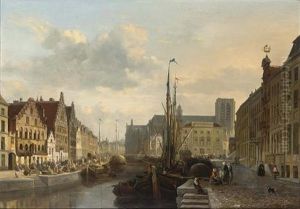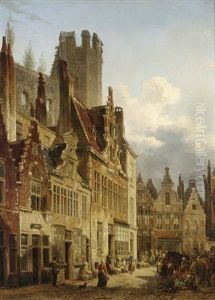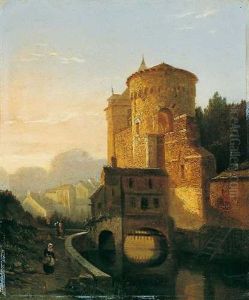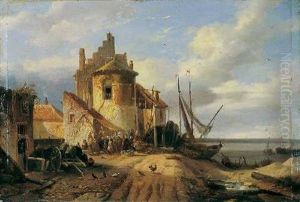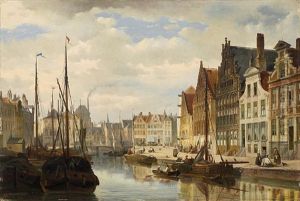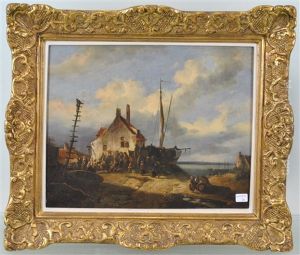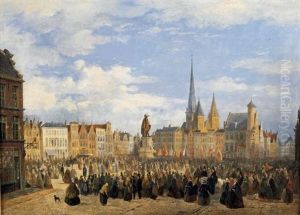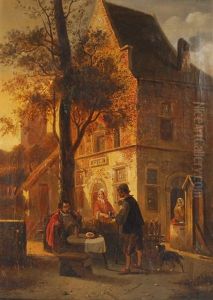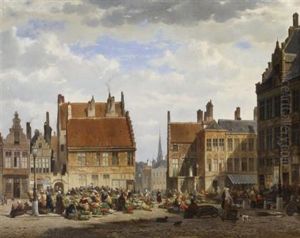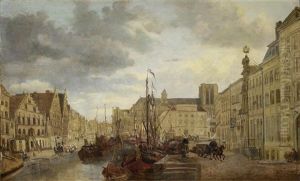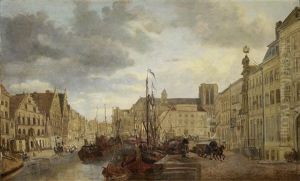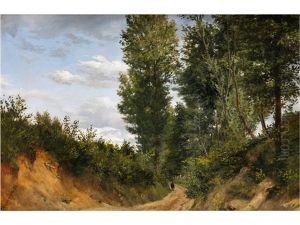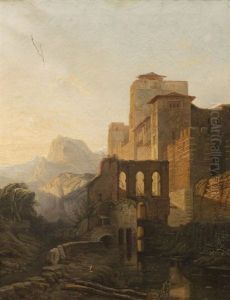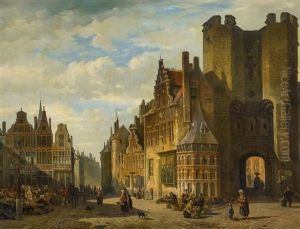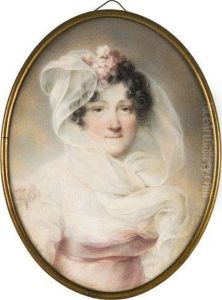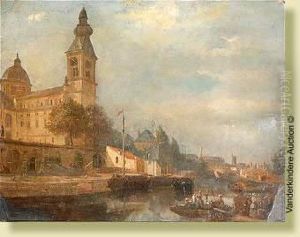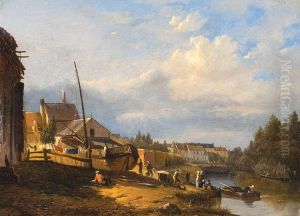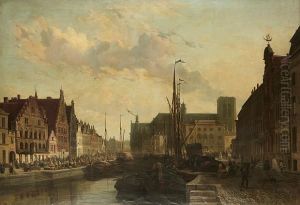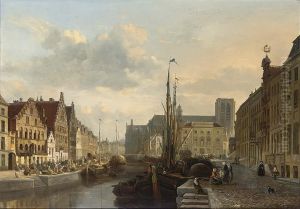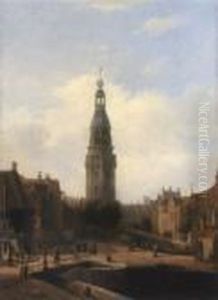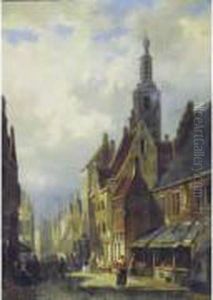Francois-Jean-Louis Boulanger Paintings
François-Jean-Louis Boulanger, also known as François Boulanger, was a French artist born on April 4, 1759, in Paris, France. His period of activity falls within the tumultuous years of the French Revolution and the subsequent Napoleonic era. Boulanger was primarily known for his work as a painter, although not as widely recognized as some of his contemporaries.
Boulanger received his artistic training in an era when neoclassicism was the prevailing style, influenced by the rediscovery of ancient art and the grand tour travels to Italy that many artists of the time undertook. His style, however, also incorporated elements of the emerging Romantic movement, evident in the emotive qualities of his works.
Despite the significant events of his time, such as the Revolution and rise of Napoleon Bonaparte, there is relatively little detailed documentation about Boulanger's personal life or his artistic career. This lack of detailed records is not uncommon for artists of the period who did not reach the highest echelons of fame. Nevertheless, Boulanger's contributions to the art world during his lifetime would have been part of the rich tapestry of French cultural history.
Boulanger's death occurred on March 1, 1836, in Paris. His works may not have garnered the same level of attention as those of his peers, but like many artists of his time, his paintings would have reflected the stylistic shifts and aesthetic preoccupations of a France that was experiencing dramatic political and social changes.
